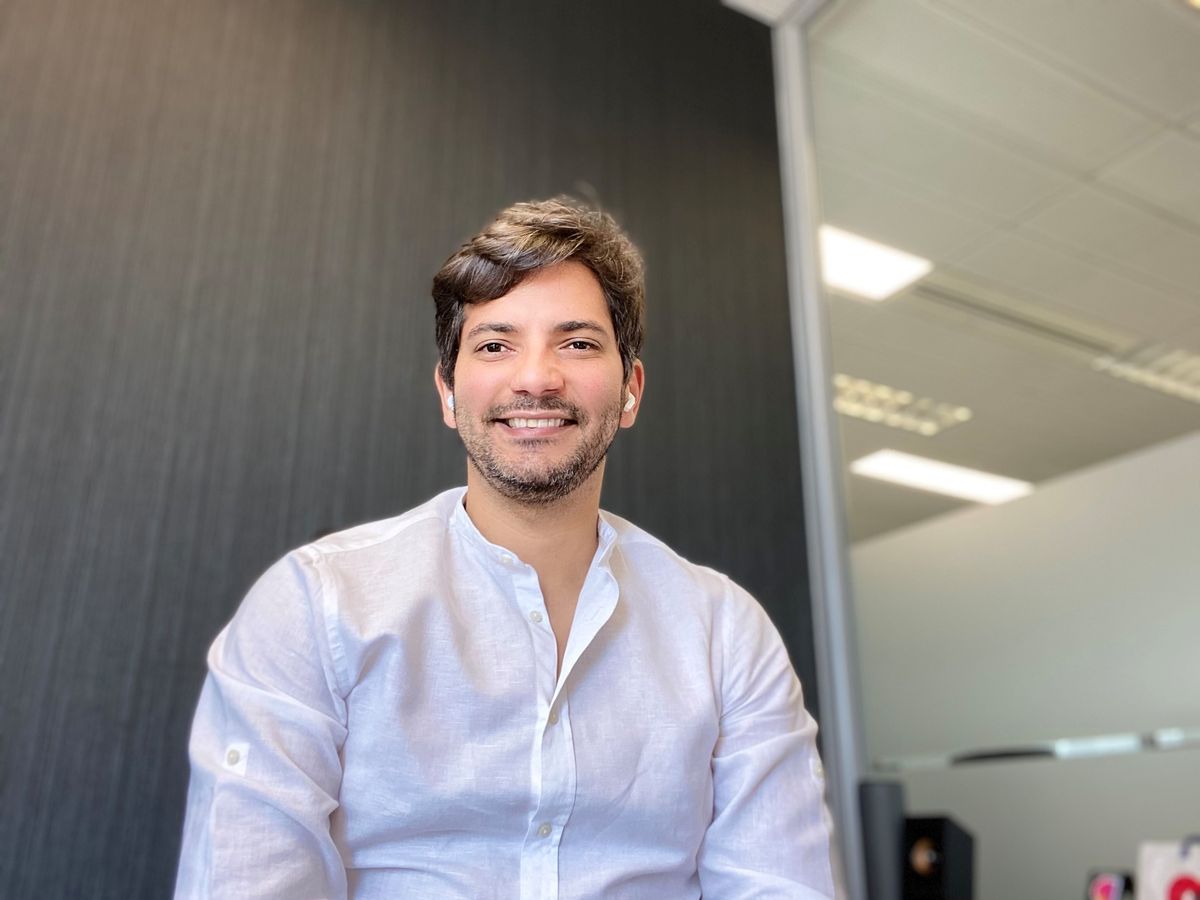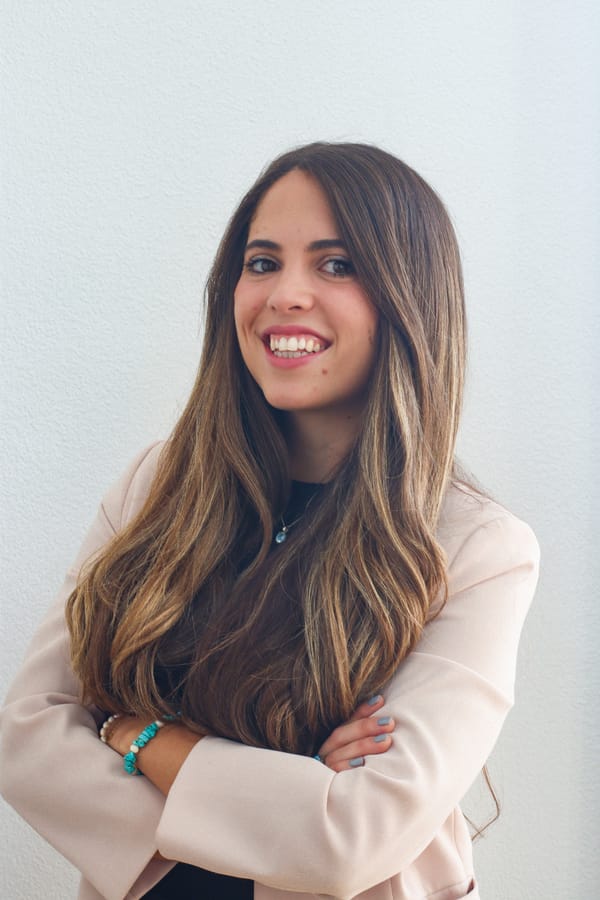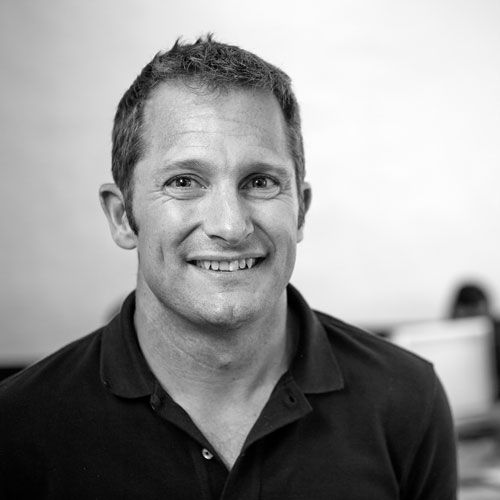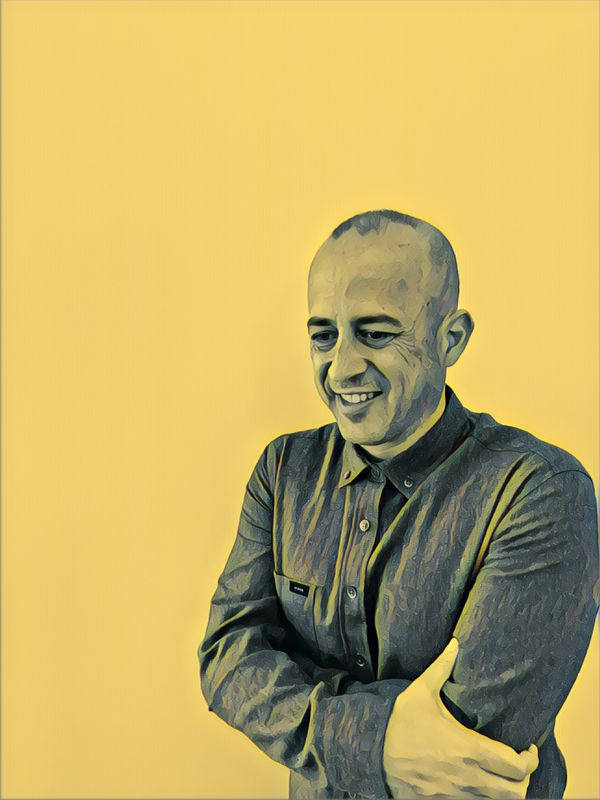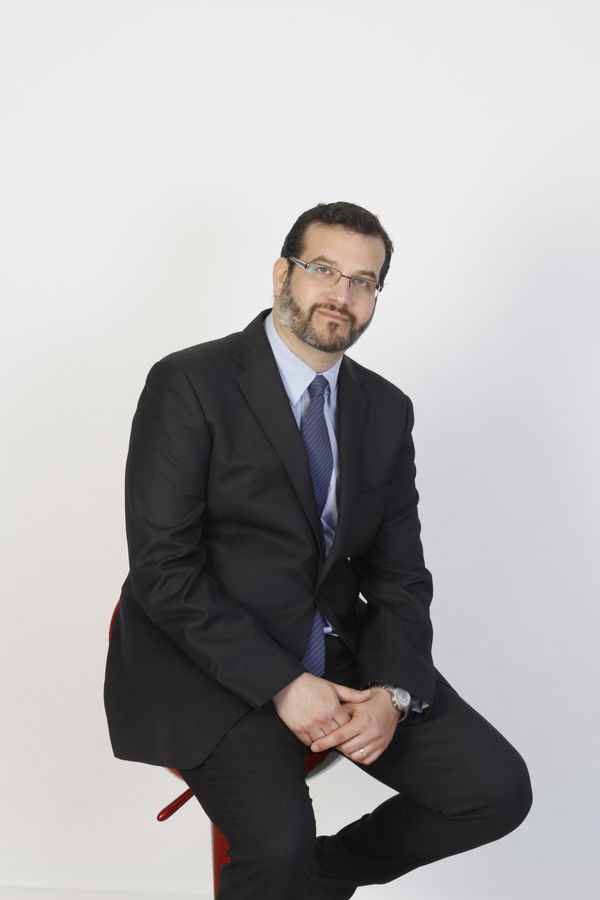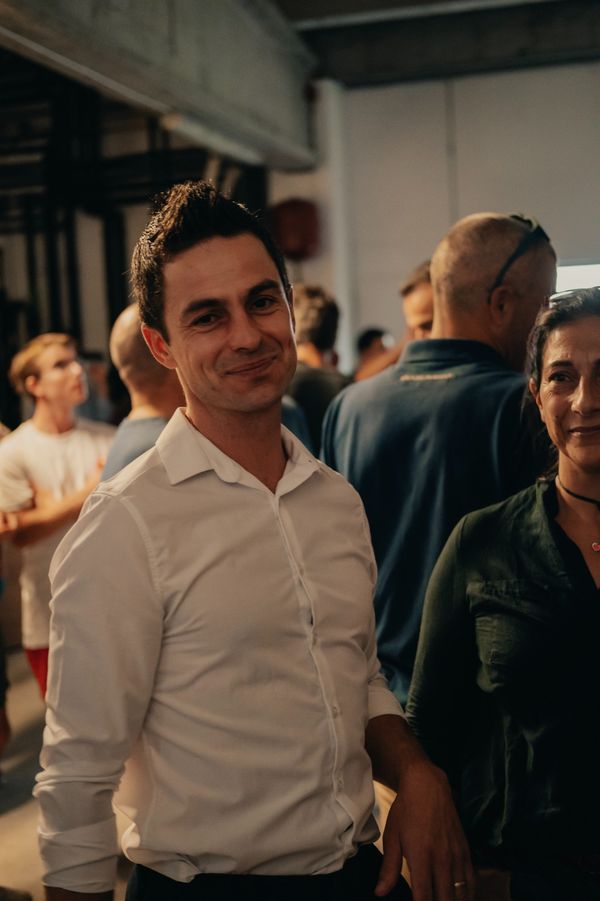Madrid, Spain
What does it mean to be a leader?
The question arose early in Brazilian entrepreneur Amancio Junior's professional journey. At the ripe age of 21, he managed a fifteen-person team at a retail company in his native São Paulo.
Years later, he's CEO and co-founder of Analyticalways. His company leverages AI to assist retailers in increasing their sales and reducing overstock. Their technology platform, ROIvolution, aids decision-making processes throughout different stages, such as planning, stock management, and sales, by accurately predicting which product should be in which store and in what quantity. Founded in 2016, the company now has over 100 employees.
Choosing the path
Amancio's professional journey was vital in understanding the essence of leadership. His introduction to the world of retail began at an early age, influenced by his mother, a seamstress, and stylist. When he turned 18, he faced a difficult decision: pursuing a career in fashion or studying technology (another field that intrigued him). He decided to work for a year before enrolling in university to avoid rushing into a potentially misguided path.
During this time, he found a job in the textile industry, specifically in the IT department. This early immersion in the industry helped him comprehend the entire garment creation process, from the arrival of the trucks carrying cotton pallets to the final product. And this is when he discovered a great passion for IT, ultimately leading him to enroll in a university in São Paulo to study information systems while juggling his work commitments.
But Amancio quickly admits he pushed himself too far during this period: "It was very tough. I had to be at the factory at 8 am, and it was a 2-hour commute from my house. I would then go to university at 6 pm, study until 11 pm, get home by 12:30 am, and had to be at work by 5:30 am the next day. I continued this routine until I fell asleep while driving from work to the university because I was getting very little sleep. That's when I told myself, I have to change jobs."
Finding opportunity
He didn't take his good fortune for granted. Amancio sought a fresh start and landed a job in a fashion retailer's business intelligence (BI) department. This new role exposed him to the other side of the industry, where he observed inherent problems in the decision-making processes. He noticed that reporting tools and dashboards provided decision makers with information, acting as a thermometer, but often misled them in making effective choices.
While studying artificial intelligence, statistics, and technology at university, he decided to focus his thesis on an AI-based solution specifically tailored for the retail industry. This project, developed with a friend who would eventually become his business partner, laid the foundation for what would later become Analyticalways.
New horizons
His interest in revolutionizing the retail industry continued after his graduation. He then ventured into self-employment, collaborating with various retailers who, despite their unique differences, faced the same challenges: "Since the problem was the same, it gave me a sense of scale. I started working hard on this until I met a Spanish entrepreneur who was expanding to Brazil. He understood the concept and loved it. Spain was going through a significant crisis, and he had retail chains there. He said, 'Hey if you come to Spain and help me with this, I can be your first investor for the project.' This was in 2008, 2009."
Though the idea and funding were in place, bringing Analyticalways to life still took significant determination. During his relocation to Spain, Amancio worked at a spin-off from a retailer, allowing him to simulate, create, and develop the technology that would be key for the materialization of Analyticalways in 2016.
All about the people
Today, the company operates in approximately 15 countries through a vast network of alliances with international companies, media outlets, associations, chambers of commerce, and technology providers, offering them the opportunity to join as affiliates, referrals, or tech partners.
When it comes to its people, Analyticalways currently has a diverse workforce of over 100 employees from around the world, with Amancio maintaining direct contact with approximately 30% of them.
Building the team happened organically. In the early stages of the business, they collaborated closely with a company that provided technological assistance. But the reality of the time and investment required was quite different from what was initially expected.
His determination to build his team and accept the realities of a steep learning curve eventually led to great synergy between Amancio and his CTO. Through this partnership, they were able to grow and evolve.
"My CTO has greatly helped me understand how everything works. For example, I used to work a lot with timelines and set strict deadlines. However, my CTO has taught me that when dealing with something you've never done before, it's difficult to predict exactly how much time it will take. As a result, we have shifted our management dynamics to agile methods. I have learned to empathize with the developers and appreciate their challenges."
Redefining leadership
With a new team under his wing, Amancio was again faced with his initial question: What does it mean to lead? In his quest for answers, he delved into various resources, immersing himself in reading materials exploring power and leadership dynamics.
"One book that I always recommend is called "The Servant" by James C. Hunter. It's a little, short book. And it's magic because you really understand why someone follows another person. Who are the first role models in our lives? When we have a problem, who do we call? Why them? Then you start to understand that, in reality, the more people you have under your responsibility, the more you have to serve them."
Building a large and successful team comes with its challenges, though. Amancio acknowledges past communication errors and admits he left employees uncertain of the company's direction. These made him recognize the importance of effective communication, leading him to implement new strategies to ensure transparency.
As a project grows, it stops belonging solely to its founders and becomes dependent on the entire team for success. Hence, every team member must understand their value to the organization: "I think this is something that one of our technical leaders has told us. And it may seem trivial, but I think it's key. He said: 'Sometimes it's important to feel important.'"
Apart from transparent communication, Amancio emphasizes the significance of a solid organizational culture based on genuine care and support, allowing individuals to grow, develop, and progress alongside the project. The leader must provide his team with structure, resources, and a clear vision. And now, with remote workers in the mix, the need for good communication has become even more critical.
For these reasons, in Analyticalways, an open culture prevails, where addressing problems is prioritized and, if necessary, department changes are considered, understanding that personal circumstances and fluctuating performance are all part of the journey.
"When you hire someone, it's a mutual bet; they bet on you, and you bet on them, right? It's about believing in people. Understanding that today may not be their best day, but tomorrow could be, maybe they have something personal going on. Not everything is about the outcome. I have taken an interest in understanding how I can help this entire team. So that they don't see me as a dictator, so that they are not afraid to speak up or tell me when I'm wrong," Amancio explains.
In addition to fostering an open work culture, Analyticalways has taken specific measures to enhance communication and ensure transparency with its team, including surveys, OKRs (objectives and key results), and quarterly OKR reviews. They have also introduced an initiative called "coffee with the CEO," where employees can send Amancio questions for him to address during a meeting.
Over the years, Amancio has learned that understanding where employees are concerned and dissatisfied is crucial to taking appropriate action and ensuring a motivated and engaged team. This is all essential for a business to flourish: "If you don't understand your team, it becomes challenging to succeed."
A values-based approach
When it comes to recognizing the factors that have contributed to his progress, Amancio places empathy at the forefront, emphasizing the significance of valuing individuals and truly understanding them, whether it's his team, family, investors, or suppliers: "To be a successful person, both at home, with your children, with your spouse, with your suppliers, with your team, with your investors, you have to understand people. Because everything, in the end, is people doing business with people, right?"
What sets a great leader apart is knowing that success is not achieved in isolation but rather through the collective efforts of a strong, motivated team. Fruitful projects are often the ones that transcend the vision of their individual founders to create opportunities for growth within the entire community.
Amancio's experience reflects this: "You realize that your project has taken on a life of its own. As a result, your focus shifts. While the product was once the key, it now assumes a secondary role. You find yourself in a position where you are an integral part of a vision that you initiated, but your team's role becomes even more crucial for the project's success."
But a people-focused approach doesn't imply neglecting the product or compromising quality. Amancio also emphasizes the significance of ambition, excellence, and believing in the values one promotes.
Turning a vision into reality is a magical process that requires a strong commitment to excellence: "This ambition, I believe, helps us convey to our clients that we want to give them the best of us." And for that, his background in the retail industry has provided him with a unique perspective and understanding of the entire process, from manufacturing to sales, understanding his clients from within and allowing him to bridge the gap between technology and fashion.
Looking ahead
Looking to the future, Amancio has ambitious goals for Analyticalways, including expanding to more countries, incorporating generative AI to develop a recommendation system, and enhancing the mobility aspect of their technology.
In the ever-changing world of technology, one thing remains certain: "Technology today is one thing, okay, tomorrow it's something else, and the day after it will be something different. The most important thing is to have a happy, strong, high-level team to achieve this vision."
Chatting with Amancio, he has a clear vision and a healthy perspective. He recognizes opportunities, engages in self-critique, and is open to criticism from others as a part of everyday life.
"An entrepreneur needs to understand that he is entering a marathon; it's not a 100-meter sprint. In a marathon, you give your all for 40 km. So, look ahead, and learn how to enjoy every five meters because that's part of the game. The uphill, the downhill, that's entrepreneurship.
Suppose you know how to go through it all — while maintaining your vision and seeking opportunities — and you value people and are empathetic, well. In that case, it's very likely that things will turn out well. I don't know if all of it will work out for me, but if it doesn't, I'll look for something else, and that's what life is about."

